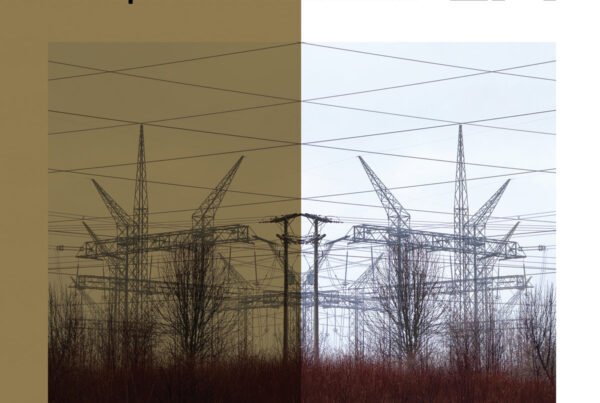Heliopause is one of those rare albums that instantly pushes the limits of a style or a genre forward.
Release date: November 22, 2019 | Erased Tape Records | Facebook | Bandcamp
Anne Müller is a German cellist and composer residing in Berlin, who has previously collaborated with Nils Frahm, Alex Stolze, Sebastian Reynolds, Ben Lukas Boysen, Markus Sieber, and Aukai. While in the past she has emphasized artistic collaboration as her preferred mode of creation, now she reaches into her own inner realm, thus bringing to the world her first solo record. Heliopause is a solo endeavor in a strong sense, too, as Müller has composed, performed, recorded, and produced every increment of it. On top of everything, her unique approach to music shines through with an inventive authenticity across this her solo debut.
Heliopause is named after the boundary where the sun’s wind ceases to have influence, and as such it demarks the border of our solar system. The name struck a chord with Müller, since the two Voyagers probes – sent on an exploratory mission forty-two years ago – recently crossed the heliopause, entering interstellar space and losing power supply from our own sun. Müller recognized herself in this moment, as she’s not only approaching the same age, but also breaking new ground. Her having relied on collaborating with so many other stars and now venturing into the unknown with her first solo statement makes a lot of sense given that context; in her own words: ‘Heliopause marks the end of a long journey but also the start of voyages to explore strange new worlds.‘
Heliopause is a record that revels in its ingenuity by taking elements from the past, the present, and the future, managing to both sound organic and stay true to a genuine expression of its composer’s self at the same time. As it simultaneously sounds like something else and its very own thing, I am hard-pressed to find the proper (if any) words that can accurately flesh out the things that unfold. Clocking in just moments shy of thirty-five minutes, it is definitely a concise record. What it does lack in physical measurements, however, it makes up for in the vastness of the explored atmospheres. When I say ‘concise’, I’m referring more exactly to how every moment is carefully placed and not one shred of sound is out of place. There isn’t any ballast whatsoever, either; the record is a lean, fat-free type of affair.
The record starts out with “Being Anne”, giving us a fascinating first glimpse of what is about to unfold before us. A series of improvised sounds akin to random noise lead the way into the slow hum of the cello that is accompanied by a soft, brushy, and metronomic beat when we hear an expansive texture slowly washing over everything. This combination of elements twists and bends gently throughout a variety of colors and shapes until it slowly fades out. The stark avant-garde delivery of this is contrasted rather nicely with the development of “Solo? Repeat!”; this follow-up track is, as its title suggests, comprised of a solo cello, or rather several layers of Müller playing her cello that are carefully interwoven with each other. Starting out with one layer, she slowly adds melodies and rhythms in a way that near the end it feels like the full-bodied character of a chamber orchestra. The predominant styling of this song hearkens back to pre-Romantic era classical music, yet with Müller’s special touch shimmering throughout.
“Nummer 2” comes with a more contemporary classical tone that is constructed with minimalist tendencies at its core. The song evolves slowly, gliding through textures, leaving a feeling that nothing changes yet no two moments are the same. In this somewhat paradoxical setting, it bears resemblance to how Ólafur Arnalds and Nils Frahm sometimes elaborate on their ideas. In these footsteps, “Aarhus / Reminiscences” follows with a more gallant and emotionally charged delivery, somehow becoming quite wistful, almost pensive even. Bringing back some zest into our tracks, “Drifting Circles” yet again brings us back to a minimalist development of textures, winding itself in a spiral that grows ever more luminescent as it progresses.
As it spirals higher and higher it basically evaporates into glistening particles of light and sound, making way for the ending of this journey, marked by an eponymous song. “Heliopause” basically captures the essence of the word into a sonic discourse. It moves laggardly, akin to the celestial bodies it references, enveloping everything in its gargantuan presence with an atmosphere so vast that no mind could properly envision such expanse. It adroitly conjures the necessary denouement of the album.
Heliopause is a record that does justice to music. It goes further than the limits of the stylings from which it borrows, creating effects that scintillate with novelty in a way that is neither overbearing nor pretentious. It is very reassuring that such music is being created more often these days, especially within the world of classical music. Anne Müller delivers a vision which is rife with potential and a sorely missed energy. I don’t believe there’s anything else to add, except ‘go listen to this album right now!‘






